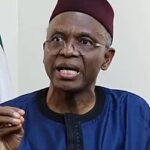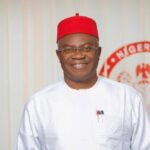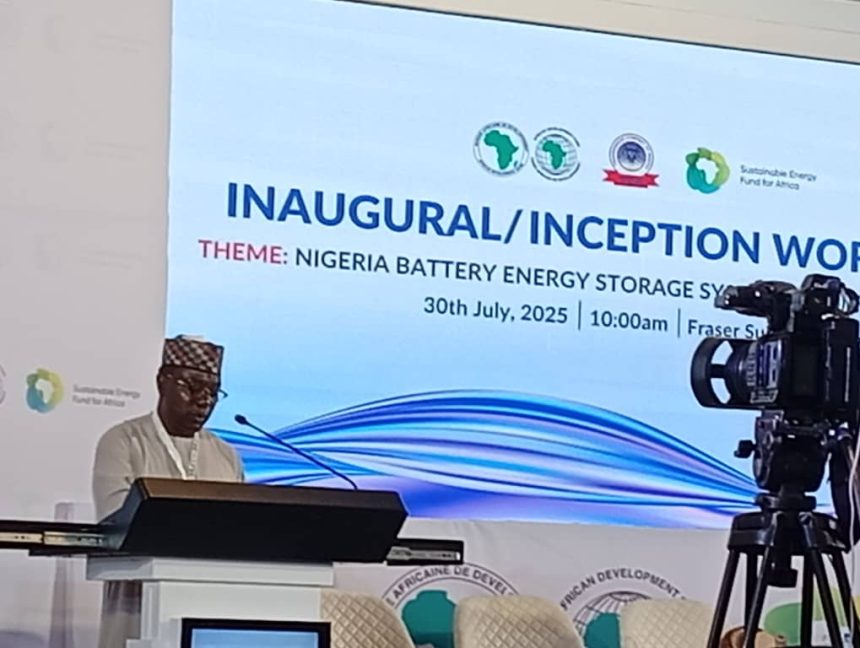By Chidi Ugwu
The African Development Bank (AfDB) announced on Wednesday the approval of a $1.2 million grant aimed at supporting a feasibility study on Battery Energy Storage Systems (BESS) in Nigeria.
Abdul Kamara, Director-General of AfDB’s Nigeria country department, shared this development during the inaugural workshop for the Nigeria BESS feasibility study in Abuja, an event co-organized by the Transmission Company of Nigeria (TCN), AfDB, and the Sustainable Energy Fund for Africa.
According to Kamara, the grant is a component of the Africa Energy Transition Catalyst Programme, which is designed to promote sustainable energy solutions across the continent.
Kamara, represented by Chigoziri Egeruoh from the AfDB Nigeria country office, highlighted Africa’s immense renewable potential—holding nearly 60% of the world’s best solar resources—contrasted with just 2% of global energy storage capacity.
This gap, he pointed out, represents both a challenge and an opportunity.
“Battery storage is critical for unlocking the full value of renewable energy and delivering stable, reliable power throughout Africa. We’re witnessing progress in this area—for example, South Africa’s 1,400 megawatt-hour storage project enhances grid stability and solar integration. In Kenya, the Olkaria geothermal-battery hybrid provides dependable energy to millions. Now, Nigeria is ready to make a similar leap, which is why the AfDB has dedicated this $1.2 million grant to the feasibility study,” Kamara noted.
He stated that the project, to be executed through TCN, would evaluate grid integration, identify viable business and regulatory frameworks to attract investment, and develop the capacity required for ownership and sustainability.
Kamara added that this initiative aligns with Nigeria’s energy transition plan, its SE4ALL action agenda, and the renewable energy master plan—reinforcing coherence across energy, climate, and innovation sectors. He emphasized that battery storage is no longer a luxury but a necessity.
“As Nigeria’s grid evolves, storage addresses real needs: frequency stabilization, reserve capacity, and peak load management. However, technology alone isn’t enough—regulations and investment environments must evolve to scale these innovations in a sustainable way.
“AfDB is a steadfast partner in this area. Through our $1 billion economic governance and energy transition support programme, we’re backing Nigeria’s crucial power sector reforms; $500 million has already been disbursed, and the next phase is in progress,” Kamara said.
He further explained that under the $1 million Africa Energy Sector Technical Assistance Programme (AESTAP), AfDB is aiding the implementation of the Electricity Act, creating state-level electricity markets, and strengthening governance.
“We are also investing directly in infrastructure: from $200 million invested in the Nigeria Electrification Project (NEP) to expand mini-grids and off-grid access, to $250 million in the Nigeria Transmission Expansion Project (NTEP) to reinforce the national grid.
“Nigeria is a central country in our $20 billion Desert to Power Initiative, which seeks to generate 10,000 megawatts of solar energy across the Sahel for 250 million people. This holds significant promise for Nigeria’s clean energy future. As we begin this important feasibility study, let’s ensure it yields actionable outcomes that reflect Nigeria’s priorities,” he concluded.
Kamara reaffirmed AfDB’s commitment to supporting Nigeria’s energy transition through financing, technical expertise, and lasting partnerships.
Also speaking, TCN Managing Director and CEO, Sule Abdulaziz, reflected on the persistent challenges TCN’s operations have faced—including frequency fluctuations, peak load pressures, and limitations in reactive power support.
He explained that these issues affect the entire electricity value chain, from generation dispatch to the delivery of power to homes and industries.
Represented by Olugbenga Ajiboye, executive director of Transmission Service Provider (TSP), Abdulaziz emphasized that BESS presents a powerful way to address these ongoing problems.
“For instance, such systems can enable frequency regulation, reserve capacity, and voltage support—directly enhancing grid performance and maximising efficient use of transmission assets.
“This makes the feasibility study both timely and vital,” he commented.
Minister of Power, Adebayo Adelabu, described the feasibility study as more than a technical undertaking—it’s a strategic step towards future-proofing Nigeria’s power infrastructure.
While the power sector has seen significant reforms, Adelabu observed that key problems persist: power intermittency, limited dispatchability of renewables, grid instability, and underutilized energy generation.
Adelabu, represented by Assistant Director of Renewable and Rural Power Access, Ben Ayangeaor, remarked:
“With growing solar and wind integration in our energy mix, storage becomes paramount: we need ways to store surplus generation and dispatch it when required for grid balance and reliability.”
BESS, he explained, offers the most practical and scalable solution.
“They play a pivotal role in reinforcing grid stability and flexibility, easing dependence on fossil-fuel-powered plants, supporting deeper renewable integration into both grid-connected and off-grid settings, and enhancing power quality and reliability—especially during voltage or frequency disturbances. They also extend clean energy to underserved and remote communities. The grid-forming capability of advanced battery storage is especially important.”
Unlike traditional grid-following inverters, grid-forming BESS can establish voltage and frequency references, essentially functioning as virtual generators.
“This makes them vital for grid frequency regulation, black start capabilities, and system resilience during disruptions or partial outages. In effect, BESS not only stores energy but also actively maintains grid performance, supporting power quality and reducing the risk of blackouts.
“This feasibility study will provide a comprehensive technical, regulatory, financial, and environmental assessment of BESS deployment in Nigeria, pinpoint priority locations nationwide, propose workable business models and financing structures, recommend policies for private investment, and lay out implementation paths aligned
with national energy transition goals,” Adelabu concluded.












